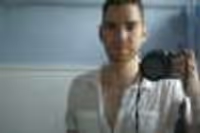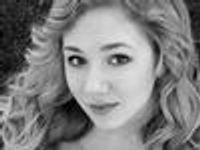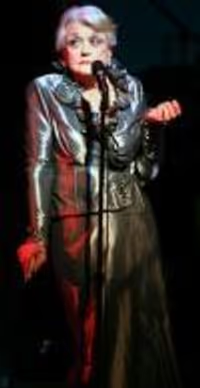Into The Woods: the Witch and Rapunzel
#50re: Into The Woods: the Witch and Rapunzel
Posted: 12/22/04 at 8:07pm
Though much of his work has been discredited, The Uses of Enchantment is still used by scholars to study fairy tales and synechdochy.
And I was presenting his views merely as how they corrolate to ITW, as it was Sondheim's inspiration for the show.
The opposite of creation isn't war, it's stagnation.
kjklo
Broadway Legend Joined: 7/29/03
#51re: Into The Woods: the Witch and Rapunzel
Posted: 12/22/04 at 8:20pmI know. I think your references are compelling and thought-provoking interpretations, some of which I actually agree with. However, I did want to point out Bettelheim's controversial reputation to those who weren't aware of it. He's one of those once fashionable figures in the social sciences who are no longer held in high repute. Freudian thought in general no longer has the authority it once did. Of course, Sondheim is of the generation that was utterly in thrall to those psychoanalytic concepts, so it's no wonder he was so taken with the book. Updated On: 12/22/04 at 08:20 PM
#52re: Into The Woods: the Witch and Rapunzel
Posted: 12/22/04 at 9:36pm
I've tended to see more of a Jung influence in Bettelheim's work.
But seeing as Jung stems from Freudian theory, you can say it is one and the same.
The opposite of creation isn't war, it's stagnation.
#53re: Into The Woods: the Witch and Rapunzel
Posted: 12/22/04 at 10:15pm
"It's Sondheim, so you NEVER know. "Johanna" from Sweeney is NOT about just his "love" for her, and "sweetly buried in your yellow hair" does NOT refer to the hair on her head."
It took me FAR too long to realize that. I did catch the "thicket" exchange between the Princes, though.
I must be naive, because none of these ideas occured to me after listening to ITW. Not that they aren't valid; on the contrary, it all makes sense now that I think about it.
#54re: Into The Woods: the Witch and Rapunzel
Posted: 12/22/04 at 10:19pm
It is not you being naive.
The whole point of Jung and Bettelheim is that these ideas and hidden meanings only reach people and
children through their subconscious.
It all goes back to the collective unconsciousness, and in a certain way, it extends to the id, ego and superego.
The opposite of creation isn't war, it's stagnation.
Unknown User
Joined: 12/31/69
#55re: Into The Woods: the Witch and Rapunzel
Posted: 12/23/04 at 12:02am
Sondheim has publicly said--as has Lapine that he does NOT agree with most of the thrust of Bettelheim's argument and the show was not instigated by the book (they both said as much as far back as the PBS Great Performance interview they gave when it first aired). This is a common misconception--so common that the souvenir program of the wonderfully dark London original used Bettelheim quotes around the illustrations. this has been discussed, with quotes from Sondheim, a LOT on the forum at sondheim.com.
Ya Sondheim has a great interest in psychoanalysis--the Seacrest bio basically implies it saved his life, and made him finally allow himself to be ok with being attracted to other men. But I don't think it was in the extreme Bettelheim takes it.
E
#56re: Into The Woods: the Witch and Rapunzel
Posted: 12/23/04 at 12:07amAlthough I agree that it is not taken to the extreme of Bettleheim, I believe that some of his views, albeit the less controversial ones, inevitably found their way into Sondheim and Lapine's music, words and direction.
The opposite of creation isn't war, it's stagnation.
Mimi Imfurst
Broadway Star Joined: 10/9/04
#57re: Into The Woods: the Witch and Rapunzel
Posted: 12/23/04 at 10:48am
The play is about children and releationships(or lack there of) to their parents. Most, if not all, of the characters are abandonned children. It's a masterpiece really. I do not think that is fair to claim that the witches love for repunzels is of "something more" than an over bearing mother. (its just as unfair as those who claim that there was "something going on" between sam wise and froto- can two people of the same sex show affection without it being "gay" or "sexual"?) The witch was abandonned by her mother and so therefor she is just being an overly protective mother to make up for what she didnt so her "daughter" doesnt become what she is.
Musicaldudepeter
Broadway Legend Joined: 3/18/10
#58re: Into The Woods: the Witch and Rapunzel
Posted: 8/5/12 at 3:44pm
Just reading this thread, and found it very, very interesting
I just finished watching Regent's Park's video recording of Into the Woods, and noticed that the relationship between the Witch and Rapunzel was very sexual. Hannah Waddingham during Our Little World plays the Witch as very turned on by Rapunzel's singing voice and her hair/beauty. Her orgasmic cries, as Rapunzel lets down her hair to her, are very striking, and made me think about this discussion.
#59re: Into The Woods: the Witch and Rapunzel
Posted: 8/5/12 at 4:22pm
I think the Witch just wants someone to unconditionally love her like a child should, hence why she wants Rapunzle as her daughter but is scared of letting her grow up and leave incase Rapunzel finds someone else to love and shes is trying to convince her to stay ("our little world is perfect") as the Witch is a very insecure person.
Thats if you want to think deep, although i do not think there is any hint of incest, but i prefer to just enjoy it!
Tours: Avenue Qx2, Grease, Sister Act,WWRY,Hairsprayx2, Never Forget, Blood Brothers x2, Singin' in the Rain, Legally Blonde,American Idiot x2, Phantom of the Opera, Beautiful Burnout, Our Countrys Good, The Ladykillers, Joseph,9-5, Rocky Horror, CATS
Regional: She Loves Me, Sweeney Todd, Kiss Me Kate, The Pajama Game, Barnum (Chichester) Metamorphosis (Lyric Hammersmith)Tristan and Yseult (Bristol Old Vic)
Tickets: Nevilles Island, Much Ado About Nothing
PattisLilKeeper
Swing Joined: 8/5/12
#60re: Into The Woods: the Witch and Rapunzel
Posted: 8/5/12 at 4:30pm
Wasn't The Witch portrayed as very much a lesbian in the out of town tryout for the show down in San Diego? I was only 6 when I saw it but I just called and asked my mom and she said that it was Ellen Folly and remembers her acting very "mannish". She said she remembered her having a mullet!
I remember reading here years ago someone saying that a lot of the dialogue that still exists in the show for The Witch and Rapunzel exists from when the character was very different. I know in any picture I've seen of the Old Globe production, the "beautiful" Witch is very punk-rock...
Musicaldudepeter
Broadway Legend Joined: 3/18/10
#61re: Into The Woods: the Witch and Rapunzel
Posted: 8/5/12 at 4:38pmYes you're right, Foley's interpretation (as was Sondheim's and Lapine's original vision) was very lesbian-ish and punk rock-ish, so that would explain why a lot of us hold this opinion of the Witch/Rapunzel relationship. There is definitely, in my opinion, more to their relationship than just a parent-daughter aspect.
#62re: Into The Woods: the Witch and Rapunzel
Posted: 8/5/12 at 6:55pm
Sorry, but anyone who listens to "Our Little World" and "Stay With Me" and doesn't pick up that the Witch's attachment to Rapunzel is more complex than motherly feelings is, well... living in their own little world. ; )
Owen22
Broadway Legend Joined: 2/24/11
#63re: Into The Woods: the Witch and Rapunzel
Posted: 8/5/12 at 6:56pm
Eric22, I think you're wrong about Sondheim and Lapine nixing the Bettelheim influence on the PBS intermission interview, but I can't say 100%. I DO know that every newspaper article at the time of the original production (along, I think, with the "60 Minutes" interview) quoted them with crediting Bettelheim with influencing "Into the Woods".
And I don't know if it was Sondheim, but I GUARANTEE you the Rapunzel/Witch lesbionic overtones were specifically part of Lapine's direction of the original.
#64re: Into The Woods: the Witch and Rapunzel
Posted: 8/5/12 at 7:43pm
"A fascinating book that I recommend to anyone is a book by Bettelheim called The Uses of Enchantment: The Meaning and Importance of Fairy Tales "
Although Sondheim and Lapine claim to have never used it (and I stand by that from their comments--it is true nearly every critic links the book to their show though, but that has more to do with how famous the book is even to non scholars), and while an interesting read, a good part of it is overdone. ie his take that The Frog Princess represents the creepy slimy curiousity kids have with their genitals and that;'s why the Princess is repulsed... Umm she's repulsed because IT'S A FROG, one that's stalker her and crawling into her bed, no less.
The NEw Yorker just had a great piece on this The Lure of the Fairy Tale http://www.newyorker.com/arts/critics/books/2012/07/23/120723crbo_books_acocella
chrisampm2
Broadway Star Joined: 5/26/07
#65re: Into The Woods: the Witch and Rapunzel
Posted: 8/5/12 at 7:53pm
Followspot, consider me then in my own little world. You really have never heard of a parental bond that smothers, that controls, that overprotects, that invests more emotion in a child than even in a spouse?
Given that nearly every relationship in the piece is defined by a parent-child connection, or lack thereof, it makes sense that Lapine and Sondheim would feature one that is the opposite of that between Cinderella and her father and stepmother and that is also the opposite of blithely letting your child or spouse into the woods.
#66re: Into The Woods: the Witch and Rapunzel
Posted: 8/5/12 at 7:58pmI'm more curious about Rapunzel's twins... Maybe they're off at her Prince's kingdom.
#67re: Into The Woods: the Witch and Rapunzel
Posted: 8/5/12 at 8:05pm
Chris, of course I understand all you're saying and fully grasp the parent/child themes throughout INTO THE WOODS... and, frankly, I wish the further insinuations regarding the Witch's attachment to Rapunzel weren't there, muddying those themes. But they are there. (Less so when "Our Little World" is omitted from the score — it comes and goes depending on the production.) That's my only point.
Musicaldudepeter
Broadway Legend Joined: 3/18/10
#68re: Into The Woods: the Witch and Rapunzel
Posted: 8/5/12 at 8:16pmChris, watch the Regent's Park recording, and watch Ms. Waddingham's movements and reactions during Our Little World, and then tell me there's nothing sexual about her relationship with Rapunzel in that particular version...It's so obvious. I don't think it was necessarily there in the 1987 Peters version of the show, but certainly in this new production, where everything was explicit, that was definitely highlighted.
#69re: Into The Woods: the Witch and Rapunzel
Posted: 8/5/12 at 9:58pm
Really enjoyed reading this thread! I never thought about some of these things and it all makes sense!
I've always found it interesting how the wolf and Cinderella's prince are played by the same actor. I think that makes a huge statement.
Also, do the Prince and the Baker's Wife have sex or just make out? From watching the OBC movie I've always interpreted as just kissing but I'm interested to hear how other productions portray it.
#70re: Into The Woods: the Witch and Rapunzel
Posted: 8/5/12 at 10:08pm
In the current Shakespeare in the Park production, they've clearly had sex. Both enter putting their clothes back on, the Prince refastening the front of his pants.
For better or worse (in my opinion, for worse), the show began getting more overtly sexualized after the original Broadway production, starting with the 1990 London production.
#71re: Into The Woods: the Witch and Rapunzel
Posted: 8/5/12 at 10:13pm^Please. There's audio of both of them clearly orgasming while Donna is climbing her hair.
#72re: Into The Woods: the Witch and Rapunzel
Posted: 8/5/12 at 10:18pm^That's actually both of them groaning in pain, a comedy bit that's been in the show since the original Broadway production. There are other times, however, when Rapunzel's singing does cause the Witch to shudder with orgasmic pleasure.
#73re: Into The Woods: the Witch and Rapunzel
Posted: 8/5/12 at 10:20pm^Actually their is an audio of Murphy Ad-libing because the rig got stuck. She is clearly overplaying it to fill the time and added in some hysterical filler.
Musicaldudepeter
Broadway Legend Joined: 3/18/10
#74re: Into The Woods: the Witch and Rapunzel
Posted: 8/5/12 at 11:03pm
Where is this audio?
And also Yes very interesting re Cinderella's prince/Wolf being played by the same actor - I never thought of this before..
Such a wonderful show with so many depths and layers ... Great to be able to discuss so deeply..
Videos


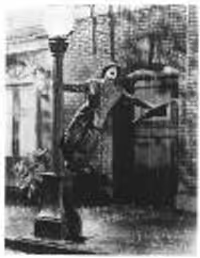
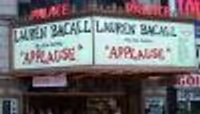
.jpg?format=auto&width=200)

